News in Brief
-
 Life
LifeMicroRNAs manage gut microbes
MicroRNAs mold gut microbes into healthier communities for the host.
-
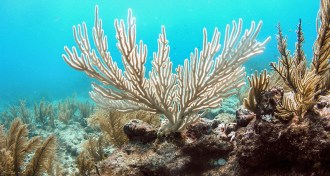 Oceans
OceansOcean heating doubles
Earth’s oceans now absorb twice as much heat as they did 18 years ago, with more than a third of that warmth going into the ocean depths.
-
 Genetics
GeneticsBubonic plague hung out in Europe
The plague bacterium Yersinia pestis may have lurked in a medieval European reservoir for at least 300 years, researchers from Germany suggest January 13 in PLOS ONE.
-
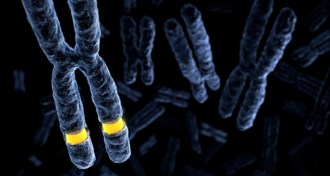 Genetics
GeneticsDrug candidate fails to improve symptoms of fragile X syndrome
A drug designed to treat fragile X syndrome has proven ineffective in clinical trials.
-
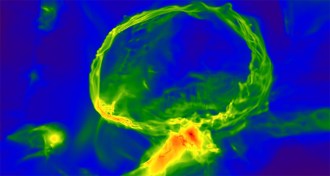 Astronomy
AstronomyNewfound gas cloud may be graveyard of first stars
A 12-billion-year-old gas cloud, rich in hydrogen and helium but nothing else, may house the remains of the universe’s first stars.
By Andrew Grant -
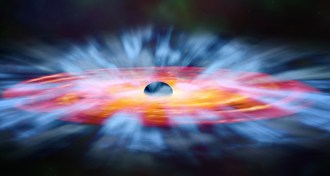 Physics
PhysicsMore details on Stephen Hawking’s solution to black hole problem
Stephen Hawking and colleagues have finally provided more information about how black holes might preserve information.
By Andrew Grant -
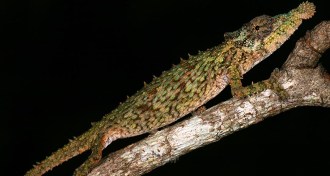 Animals
AnimalsSmall lizard packs powerful tongue
A tiny chameleon from South Africa sets an acceleration and power record for amniotes.
-
 Archaeology
ArchaeologyRoman toilets didn’t flush parasites
Roman sanitation measures did little to dent parasite numbers, a study finds.
-
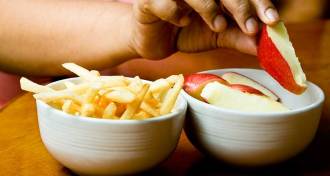 Health & Medicine
Health & MedicineNew dietary guidelines emphasize big picture
Americans’ new guidelines for healthy eating focus on subtle shifts to dietary habits.
By Meghan Rosen -
 Astronomy
AstronomyThis black hole is an extreme recycler
A cosmic pump powered by a supermassive black hole is recycling gas through a galaxy.
-
 Chemistry
ChemistryExperiment offers glimpse at how to make hydrogen metallic
A new phase of hydrogen could represent the stepping stone for transforming element 1 into a metal.
By Andrew Grant -
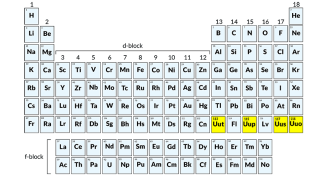 Chemistry
ChemistryFour elements earn permanent seats on the periodic table
The four newest elements on the periodic table gain official recognition and will be getting new names soon.
By Andrew Grant